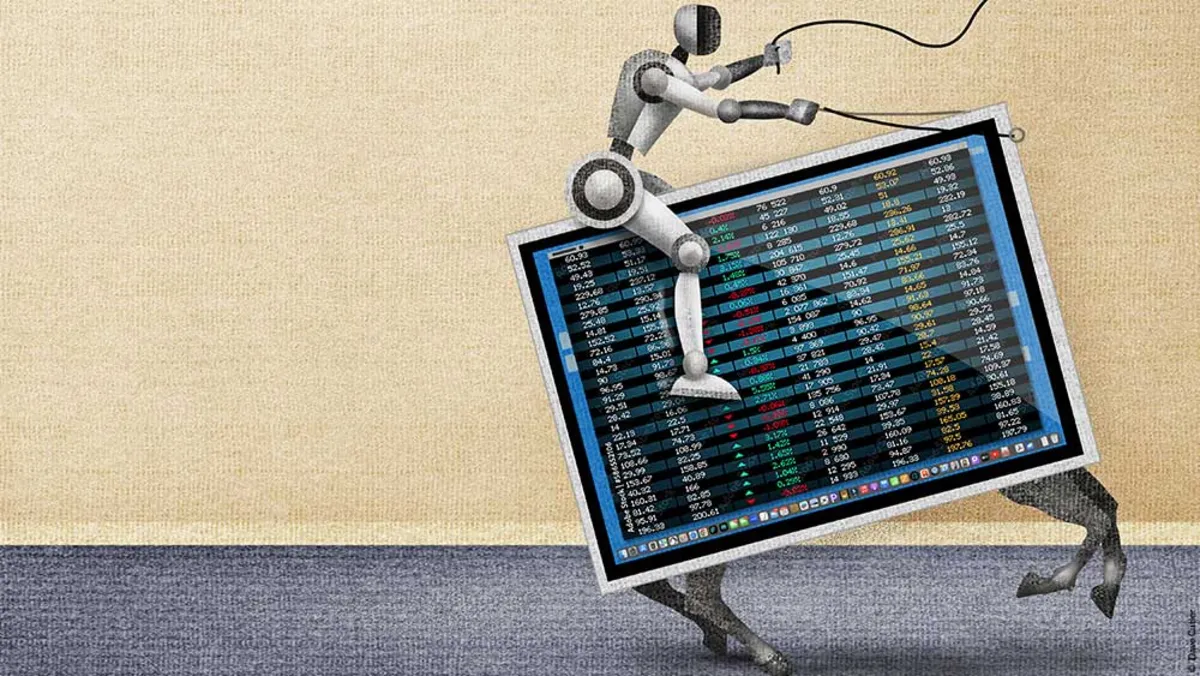
In a powerful display of confidence, five major tech companies have sent a definitive message to Wall Street: the artificial intelligence (AI) megatrend is not only alive but thriving. Despite ongoing discussions about a potential AI bubble and fears of crashing AI stocks, this past week’s earnings reports from Meta Platforms (META), Microsoft (MSFT), Google parent Alphabet (GOOGL), Amazon (AMZN), and Apple (AAPL) suggest a different narrative. Each of these tech giants reported solid financial results and indicated plans to significantly increase their investments in the AI sector.
Meta's Chief Executive, Mark Zuckerberg, emphasized that the potential opportunities within the AI domain are vast enough that overspending appears to be a minor concern. "We keep on seeing this pattern where we build some amount of infrastructure based on what we think are aggressive assumptions, only to find that demand keeps increasing," Zuckerberg stated during Meta's Q3 earnings call. This perspective reflects a broader trend among major players in the tech industry, as they prepare to escalate their spending on AI infrastructure.
The implications of this spending spree extend beyond the tech stocks themselves. Increased investments in AI are expected to benefit companies specializing in AI chips and data center solutions, including Nvidia (NVDA), AMD (AMD), and Broadcom (AVGO). Moreover, this trend will likely ripple through various sectors such as heavy construction and energy, as demand for data centers and related infrastructure continues to soar.
During the recent earnings season, both Microsoft and Google showcased impressive results for the September quarter. Microsoft's Azure cloud computing division and Google Cloud outperformed expectations. While Meta's earnings faced a setback due to a significant one-time tax charge, its revenue exceeded analysts' forecasts. Importantly, both Meta and Microsoft provided guidance for December-quarter revenues that aligned with consensus estimates, signaling stability in their financial outlooks.
Amazon's Q3 results also surpassed Wall Street’s expectations, and Apple reported record revenue from iPhone sales and services in its fiscal fourth quarter. This consistent performance among tech giants reassures investors that there is still substantial growth potential in the current market climate.
The ongoing debate about a potential AI bubble primarily revolves around the race to construct more powerful data centers capable of supporting advanced AI systems. This surge in construction has fueled demand for a variety of tech hardware, including chips, server racks, and networking equipment. Recent reports confirm that this trend is set to continue, with significant capital expenditures reported by leading tech firms. For instance, Google announced a capex of $24 billion for the September quarter, a staggering 83% increase from the previous year. Microsoft reported $35 billion in expenditures, a 74% rise, while Meta's capex soared to $19.4 billion—more than double its spending from a year earlier.
Looking ahead, Meta expects its capital expenditures to increase significantly in 2026, while Microsoft anticipates a steeper growth rate in fiscal 2026 capex compared to fiscal 2025. Amazon's CFO indicated that the company is on track to spend $125 billion on cash capex this year, reflecting a broader trend of escalating investments in AI infrastructure.
The enormous costs associated with building and maintaining data centers capable of handling AI workloads are projected to require around $5.2 trillion in capital expenditures, according to a report by McKinsey & Company. This level of investment is poised to have a significant impact on both the economy and the stock market. Currently, Microsoft, Meta, Google, and Amazon collectively account for over $11.5 trillion in market capitalization, and when considering other players like Apple, Nvidia, and AMD, the total exceeds $24 trillion—accounting for more than 40% of the S&P 500’s market cap.
Microsoft CEO Satya Nadella highlighted the company's commitment to building a "planet-scale cloud and AI factory," intending to increase AI capacity by over 80% this year and double its data center footprint in the next two years. This sentiment resonates across the industry as companies ramp up spending on AI technologies.
Despite the strong earnings reports, some analysts have expressed concerns regarding the sustainability of such high spending levels. Meta's recent results led to a significant drop in its stock price, illustrating Wall Street's unease about escalating capital expenditure plans. BNP Paribas analyst Stefan Slowinski noted that Meta's financial results have become increasingly "noisy" compared to other tech giants, raising flags for investors.
Zuckerberg remains optimistic about establishing Meta as a leader in AI research and development, even as the company faces scrutiny over its spending. The potential for a "generational paradigm shift" in AI could yield substantial rewards, but it also carries risks, as highlighted by analysts who caution against overextending capital investments.
While the conversation around an AI bubble continues, the prevailing sentiment among many analysts is one of cautious optimism. As tech giants continue to invest heavily in AI, the potential for innovation and growth in this sector remains significant. The outcome of this investment spree will ultimately shape the future landscape of both the tech industry and the broader economy.
As the earnings season unfolds, investors will be closely monitoring the developments within the AI ecosystem, looking for signals of growth and sustainability amid the ongoing evolution of this transformative technology.